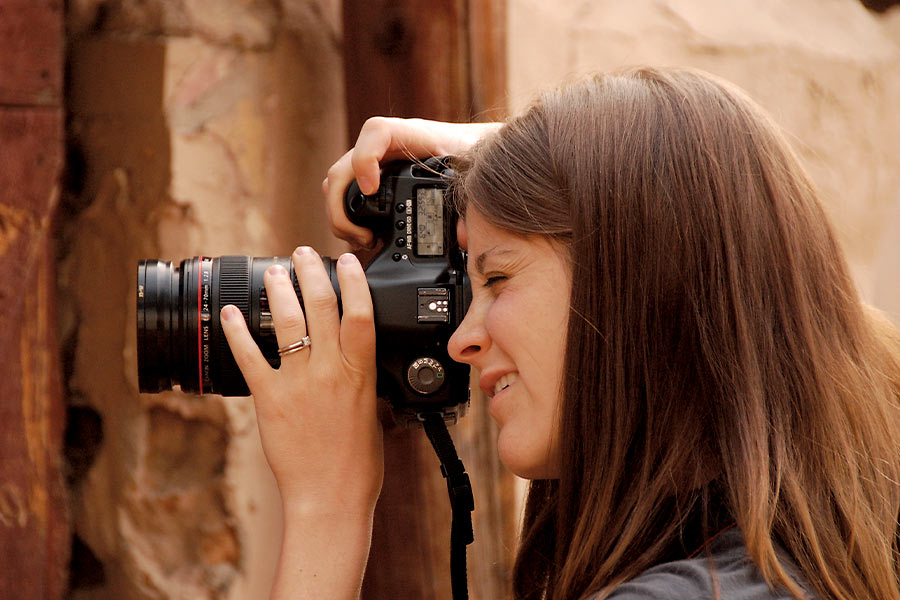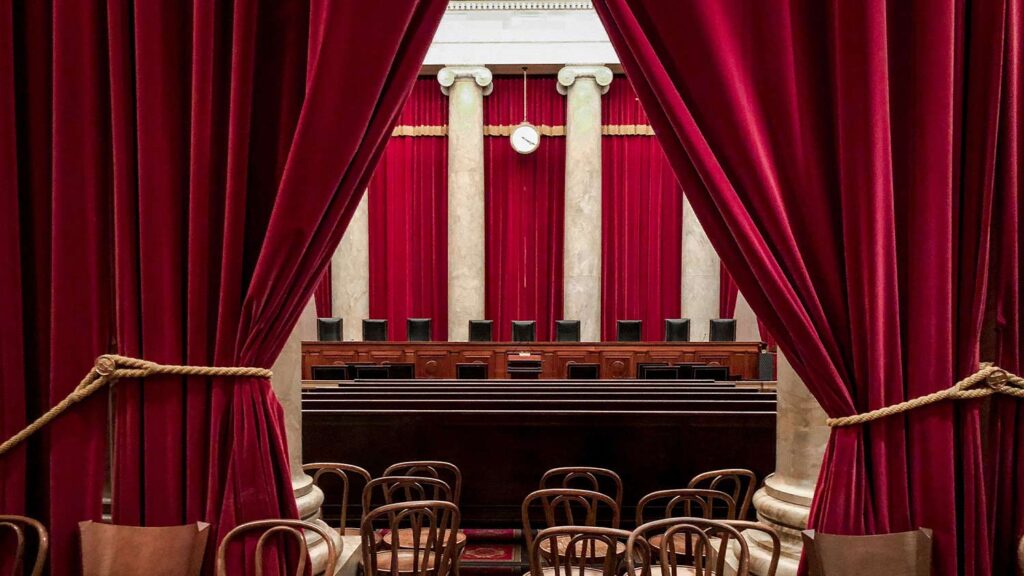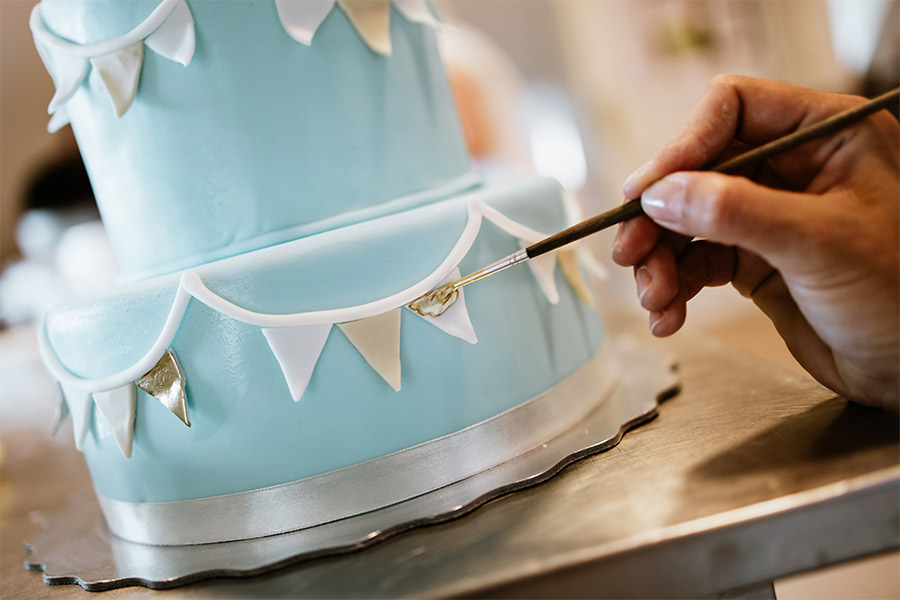
You may have heard of Lorie Smith. She’s a graphic artist and web designer who loves to bring stories to life through artwork.
You may also have heard of the art studio Lorie owns—303 Creative in Denver, Colorado. That’s because Lorie has challenged a Colorado law that would force her to create designs that violate her beliefs.
With the help of Alliance Defending Freedom, Lorie filed a lawsuit to protect her freedom—and the freedom of every American—to express our beliefs without fear of government punishment. Lorie’s case, 303 Creative v. Elenis, made it all the way to the U.S. Supreme Court, which issued a landmark ruling in June 2023.
Let’s unpack what 303 Creative is all about.

Who is Lorie Smith of 303 Creative?
Lorie Smith spent over a decade in the corporate design world in a variety of different roles—from marketing and advertising to graphic design and branding. But something was missing.
Lorie wanted to promote causes close to her heart, such as serving children with disabilities, celebrating the beauty of marriage, supporting veterans, and assisting overseas missions. So she went out on her own and founded 303 Creative.
A Colorado native, Lorie named her art studio “303 Creative” because “303” is the Denver area code.
She was excited to expand her portfolio to create custom websites celebrating marriage between husband and wife, but Colorado made clear she wasn’t welcome in that space. Lorie learned a state law was censoring what she wants to say and requiring her to promote messages with which she disagrees.
Lorie loves to work with everyone, including those who identify as LGBT. She decides whether she can custom-design a project based on her beliefs, the content being requested, and her own expertise.
This is because every word she writes, every graphic she designs, and every website she crafts expresses a unique message—something that must be consistent with the core of who she is.
So her decisions on whether to create custom art always turns on what she’s being asked to communicate and never on who is requesting it. And there are some messages Lorie cannot design, regardless of who asks her.
303 Creative v. Elenis
Lorie realized that Colorado was censoring her speech. So with the help of ADF attorneys—and consistent with our nation’s civil rights tradition—she challenged the unjust law to protect her freedom and the freedom of all Americans to say what we believe without fear of government punishment.
Sadly, a federal district court declined to protect Lorie’s free speech rights. Lorie then appealed to the U.S. Court of Appeals for the 10th Circuit, which issued another disappointing decision. In an unprecedented ruling, the circuit court held that the state can compel Lorie to express messages that contradict her core beliefs.
So Lorie appealed to the U.S. Supreme Court, which agreed to hear her case and heard oral argument in December 2022. And in June 2023, the High Court ruled in Lorie’s favor, reaffirming that the government can’t force Americans to say things they don’t believe.
Outcome
Reversing the 10th Circuit, the Supreme Court held that the government cannot force Lorie to create speech that violates her beliefs.
In his 6-3 majority opinion, Justice Neil Gorsuch wrote, “as this Court has long held, the opportunity to think for ourselves and to express those thoughts freely is among our most cherished liberties and part of what keeps our Republic strong.”
“[T]he freedom to think and speak is among our inalienable human rights. … By allowing all views to flourish, the framers understood, we may test and improve our own thinking both as individuals and as a Nation.”
ADF CEO, President and General Counsel Kristen Waggoner explained the importance of the ruling:
“Without the freedom to speak, we shutter diverse views, meaningful debate, and the conditions for progress,” Kristen said. “Regardless of one’s beliefs, race, faith, or identity, no one should be punished by the government for saying what they believe. Political and cultural winds shift, but the First Amendment’s promise remains constant.”
“If our civil liberties are to have any meaning, people must be free to speak consistently with the very core of who they are. The Supreme Court’s ruling ensures that future generations will enjoy this most essential of freedoms.”
Case timeline
- September 2016: ADF attorneys filed a lawsuit on Lorie’s behalf challenging Colorado’s law in federal court. Nearly three years later, a judge ruled that Colorado officials can force Lorie to design and publish custom websites promoting messages that conflict with her beliefs.
- October 2019: Lorie appealed to the 10th Circuit, asking it to reverse the lower court’s decision. And in November 2020, the 10th Circuit heard her case.
- July 2021: The 10th Circuit issued an unprecedented ruling in Lorie’s case, upholding the Colorado law that Colorado officials are using to violate Lorie’s free speech and require her to say things she doesn’t believe.
- September 2021: Lorie asked the Supreme Court to take up her case and reverse the 10th Circuit’s ruling to protect her First Amendment rights.
- February 2022: The Supreme Court announced that it would hear Lorie’s case.
- May 2022: ADF attorneys filed their opening brief with the Supreme Court.
- June 2022: A diverse group including artists, publishers, LGBT-advocacy organizations, legal scholars, and 20 states submitted friend-of-the-court briefs to the Supreme Court asking it to uphold free speech for Lorie and all Americans.
- December 2022: ADF CEO, President, and General Counsel Kristen Waggoner represented Lorie during oral argument at the Supreme Court.
- June 2023: The Supreme Court ruled in Lorie’s favor, reaffirming that the government can’t force Americans to say things they don’t believe. The Court reiterated that it’s unconstitutional for the state to eliminate from the public square ideas it dislikes, including the belief that marriage is the union of husband and wife.
The bottom line
Free speech is for everyone. No one should be forced by the government to say something they don’t believe.




